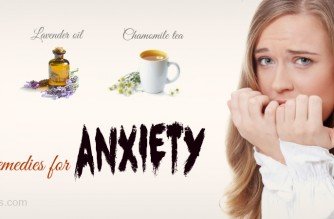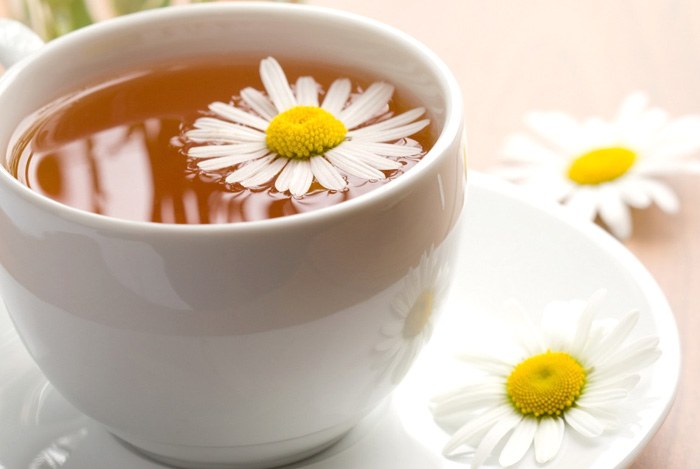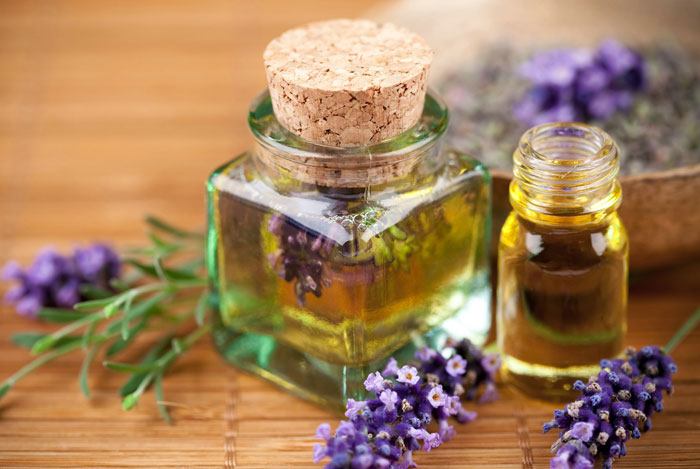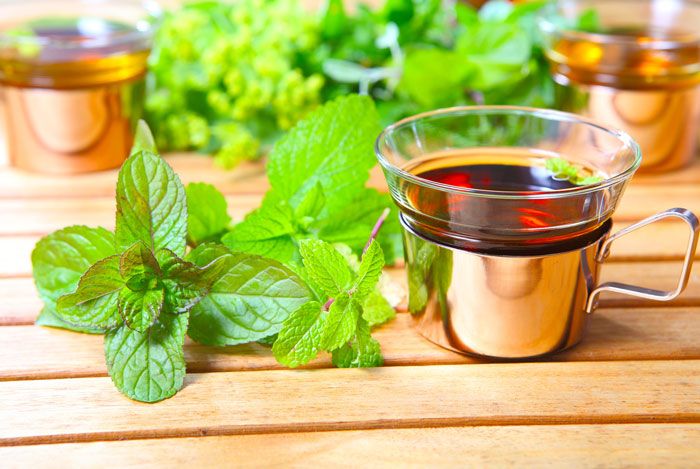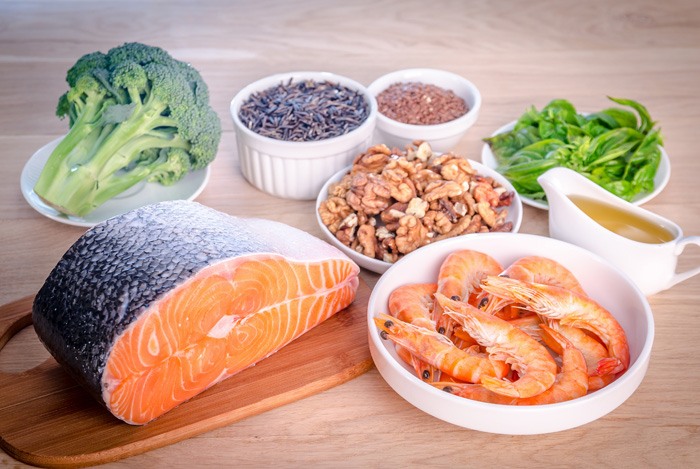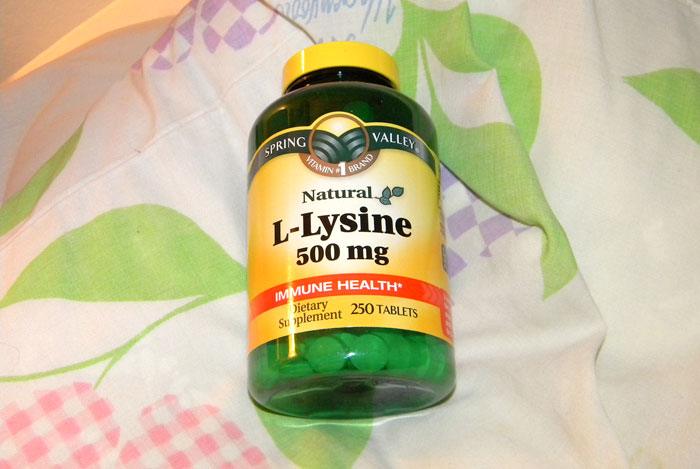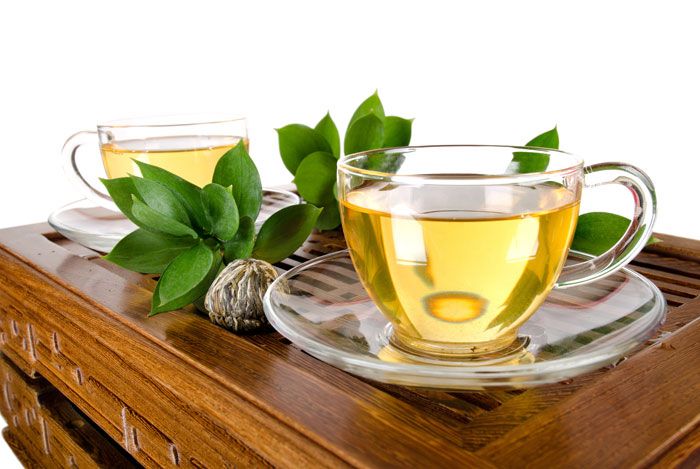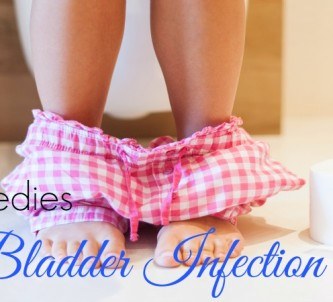Table of contents
Anxiety can create and worsen a gamut of problems. People experiencing anxiety are often unable to grapple with uncertainty about the future, or feel stuck in adverse life situations like job loss, or ruminate over making mistakes. A common symptom is overthinking. This article offers 8 home remedies to relieve the symptoms of anxiety. Continue reading to discover more about the most effective home remedies for anxiety relief.
- Quick natural home remedies for depression
- Natural home remedies for insomnia treatment in adults
- Natural home remedies for sleep disorders in adults
Top 8 Effective Home Remedies For Anxiety Relief
1. Take A Cup Of Chamomile Each Day
If you are stuck in a dilemma in your life that you do not know how to get rid of it, a cup of chamomile may help you calm down.
“Calm mind brings inner strength and self-confidence, so that's very important for good health.”
Chamomile contains chemicals that can energize you and promote your relaxation quickly when you are anxious. Waking up in the morning, you seemingly find it hard to start your new day with a bunch of difficulties ahead. A cup of chamomile will charge yourself fully before going out for work. You just need to put two or three teaspoons of dried chamomile into a cup of hot water then wait for three or five minutes. After that, enjoy your tea slowly. Or you can take it as a supplement along with dried chamomile flowers. According to a study in the Journal of Clinical Psychopharmacology in 2009, patients who suffered from generalized anxiety disorder and took chamomile supplements for 8 weeks significantly reduced the symptoms of anxiety compared to patients who took placebo [1]. This method really works out for people who love using natural remedies for better health.
2. Lavender Oil
EffectiveRemedies Partner Solutions

Ask a Doctor Online and Get Answers in Minutes, Anytime!
Have medical questions? Keep asking questions to a Verified Expert until you get the answer you need.
The aroma of lavender may be considered as an emotional anti-inflammatory agent. According to a study, Greek dental patients are less anxious if there is lavender oil in the waiting room [2]. In one Florida study, students inhaling lavender oil scent before having an exam have less anxiety [3].
According to one German study, there is a formulated lavender pill that helps to reduce the symptoms of anxiety in people suffering from Generalized Anxiety Disorder as effectively as lorazepam, an anti-anxiety medication [4].
In case you are suffering from insomnia condition just because you spent so much time on thinking, and you did not even have enough time to sleep, try putting a few drops of lavender oil into your pillow or set a bottle of lavender flowers beside your bed, you will realize a big change in your sleeping. You will be lured by the gentle scent from lavender immediately as you intend to worry, then you will soon be immersed in a deep sleep. The science has also revealed that lavender massage can make people feel less stressful. Therefore, taking lavender massage whenever you are worried is advisable for you.
3. Use Lemon Balm
Lemon balm is an excellent healthy supplement that is extracted with the purpose of making people feel more conscious in case they feel overwhelmed by the anxiety. Lemon balm, with its outstanding scent, can leave in people’s mind a peaceful feeling. Those who take a small amount of lemon balm extract (600mg) would be more calm and alert than those who do not. According to a study, those who take a small amount of lemon balm extract (600mg) would be more calm and alert than those who do not [5].Lemon balm is useful to some extents, but it needs to be used with care because if people abuse it, it will even make people feel more stressed.
4. Consume Omega-3s Daily
Due to its great calming properties, omega-3s is effective for alleviating anxiety. You can meet Omega-3s in many kinds of food or from fish oil. Experts have shown that fatty acids from omega-3s are really helpful to the ones who usually feel anxious. In a study, students taking 2.5 milligrams per day of the mixed omega-3 fatty acids within 12 weeks reported less anxiety before having an exam than students who took placebo [6]. It is recommended that you get omega-3s from food whenever possible. You can consume salmon and many other kinds of fish rich in omega-3s to guarantee you take the highest degree of omega-3s from them, because in such kinds of fish, omega 3 fatty acids are found with the best quality. Therefore, you should eat such kinds of food to get the most advantages of omega-3s to mitigate anxiety, depression and stress. Omega-3 fatty acids are found abundantly in:
- Flaxseed oil (cold pressed) – 14954mg of omega-3s per tablespoon (14g)
- Fish oil (salmon) – 1905mg of omega-3s per teaspoon (5g)
- Chia seeds – 9985mg of omega-3s per ounce (28g)
- Walnuts – 2542mg of omega-3s per ounce (28g)
- Fish roe (caviar) – 1091mg of omega-3s per tablespoon (16g)
- Oily fish (mackerel) – 2506mg of omega-3s per 3oz (85g)
- Seafood (oysters) – 412mg of omega-3s in a medium oyster (about 25g)
- Soybeans (roasted) – 474mg of omega-3s per ounce (28g)
- Sweet red peppers, sautéed – 411mg of omega-3s per 1/2 cup (53g)
- Avocado oil – 48mg of omega-3s per teaspoon (5 grams)
5. Cut Down Caffeine
To some extents, caffeine can be a great substance to keep you stay awake and boost your energy. However, too much is not always good, especially when you think that you have to stay awake to complete the rest of your tomorrow plan, so you decide to drink two cups of coffee for one night. As a result, your task not only is incomplete, but you also feel even more stressful. Abusing such caffeine drinks or foods such as soda, chocolate, coffee never helps you out in difficulties.
Research also shows that drinking too much caffeine may induce anxiety symptoms, and patients with social anxiety and panic disorder seem to be sensitive to the caffeine effects [7].
Just take an enough amount of caffeine in case you are too hungry for it, if not, try switching to use drink or food with less caffeine and more health benefits such as green tea, and peppermint. You will be better and more productive in work. In addition, Dr. Perpetua Neo said “stop drinking after 2pm and maximum 2 cups a day if possible.”
6. Add L-Lysine To Your Daily Diet
Studies have shown that taking L-lysine supplements had helped people to reduce anxiety and stress effectively. L-lysine can be found in such food as meat, fish or beans. It is not difficult to find out these foods. It is extremely essential to add L-lysine to your diet because this supplement will help you.
7. Take A Deep Breath Daily
Deep breathing plays an important role in reducing the anxiety because shallow breath is the cause of people’s panic. Deep breathing can be practiced at home whenever you have free time. This action seems to be easy to do but how to do it in the right way is not simple. Therefore, deep breathing is divided into three types as below:
a. Coherent Breathing
This method simply means that you just have 5 breaths per minute. You will succeed to complete this mission if you can count to five inhaling and five exhaling in one minute. The five-minute rate helps to maximize the heart rate variability (HRV), a measurement of how well the parasympathetic nervous system is working. The higher the HRV is, the better your health is. Therefore, breathing at a rate that reaches the highest HRV is ideal to reduce anxiety.
b. Resistance Breathing
- As exactly described in the name, this method of breathing can create resistance to the flow of air.
- Firstly, you purse your lips
- Then, you place the tip of the tongue against the inside of the upper teeth, hiss through the clenched teeth
- After that, you tighten the throat muscles, partially close the glottis
- Finally, you narrow the space between your vocal cords, or use an external object such as breathing through a straw.
c. Breath Moving
Breath moving is when the breath moves courtesy of your imagination. The method can be performed as the following guides:
- When you breathe in, imagine that you are moving breath to the top of your head
- When you breathe out, imagine that you are moving your breath to the base of your spine, your perineum, your sit bones
- At the time you breathe in, move the breath to the top of your head
- At the time you breathe out, remember to move the breath to the base of the spine
- Breathe in this process for ten cycles.
With these 3 methods of breathing at home, your body can realize the very first signals of recovery from anxiety to relaxation.
8. Take L-Theanine Daily
L-theanine is found mainly in green tea and black tea. It has the direct impact on the brain and helps to reduce stress without making you sleepy. Therefore, it is useful if you absorb a proper amount of L-theanine each day to energize yourself and keep you awake to complete your work. According to research, L-theanine helps to control blood pressure and a rising heart rate. In addition, some small human studies have noted that it aids in reducing anxiety. In a study, anxiety patients were more focused and calmer during a test after taking 200 mg of L-theanine [8].
You can take 50mg of L-theanine each day – an amount that is not too little and not too much – to guarantee the effectiveness of it. By taking a cup of black tea, which contains about 25mg of L-theanine, or a cup of green tea with 8mg, you can really feel the relaxation. If you want more effect on your anxiety, you can try 200 mg each day.
Hope that these home remedies will partially help you to find the inner peace in your mind and soul so that the anxiety could not find any place to dwell in your thoughts. If you want to know about natural home remedies for other health problems, you might visit our main Home Remedies page. For any comment about this article or if you know about other natural home remedies for anxiety relief, please show them in the comment box!
Additional References:
- Study Shows Chamomile Capsules Ease Anxiety Symptoms
- Essential oil of lavender in anxiety disorders: Ready for prime time?
- Nutritional and herbal supplements for anxiety and anxiety-related disorders: systematic review
- How to treat anxiety naturally Reviewed by Timothy J. Legg, PhD, CRNP

